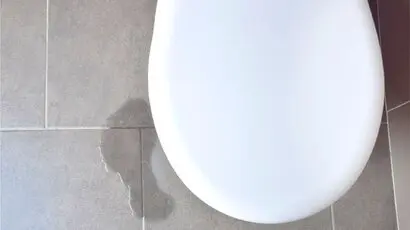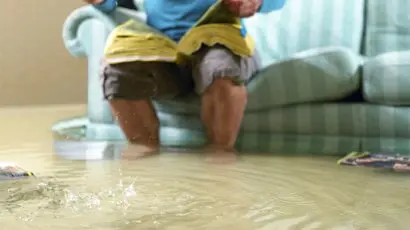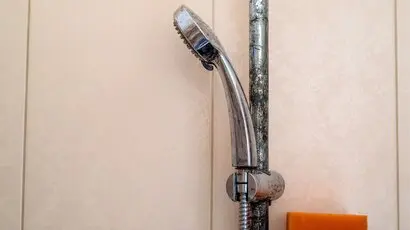Have You Got A Problem With Hard Water?
How do you know if your home has hard water? Check out our guide as we tell you what hard water looks like and how to deal with it!
Hard water often causes all sorts of water-related issues.
You’ll find hard water commonly in areas near gypsum or lime. Yet, many folks aren’t sure what it really is. Hard water has minerals like calcium and magnesium. It might even have some iron, especially from lakes and rivers.
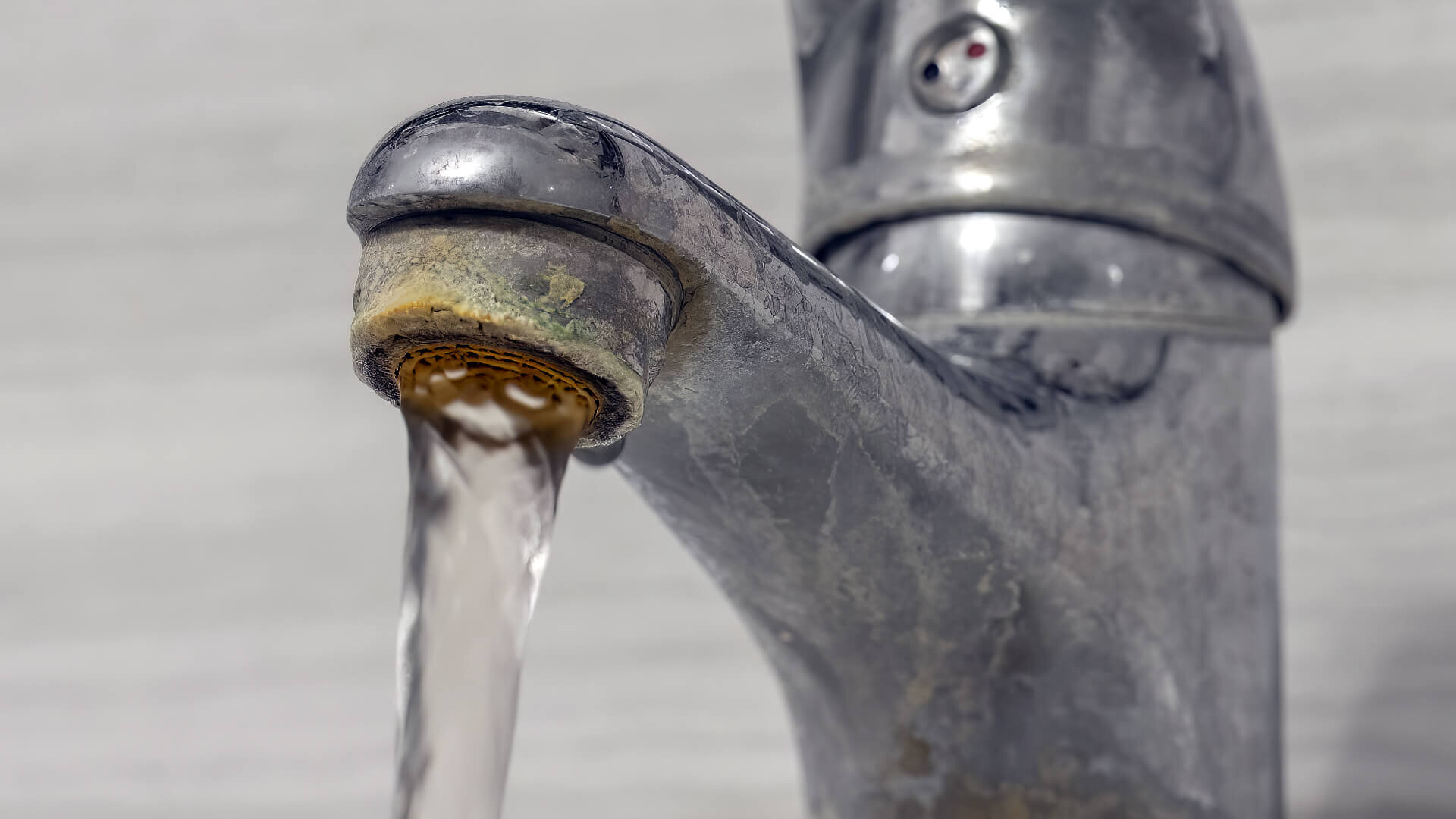
While not all these minerals are harmful, hard water often contains dangerous bacteria that can cause different problems. The issue is not restricted to rural areas but is highly prevalent in urban households.
The good news? Spotting hard water issues isn’t too tough. There are definite signs to look for, and this guide is here to help you pinpoint them.
This will help you take adequate steps to resolve the problem effectively.
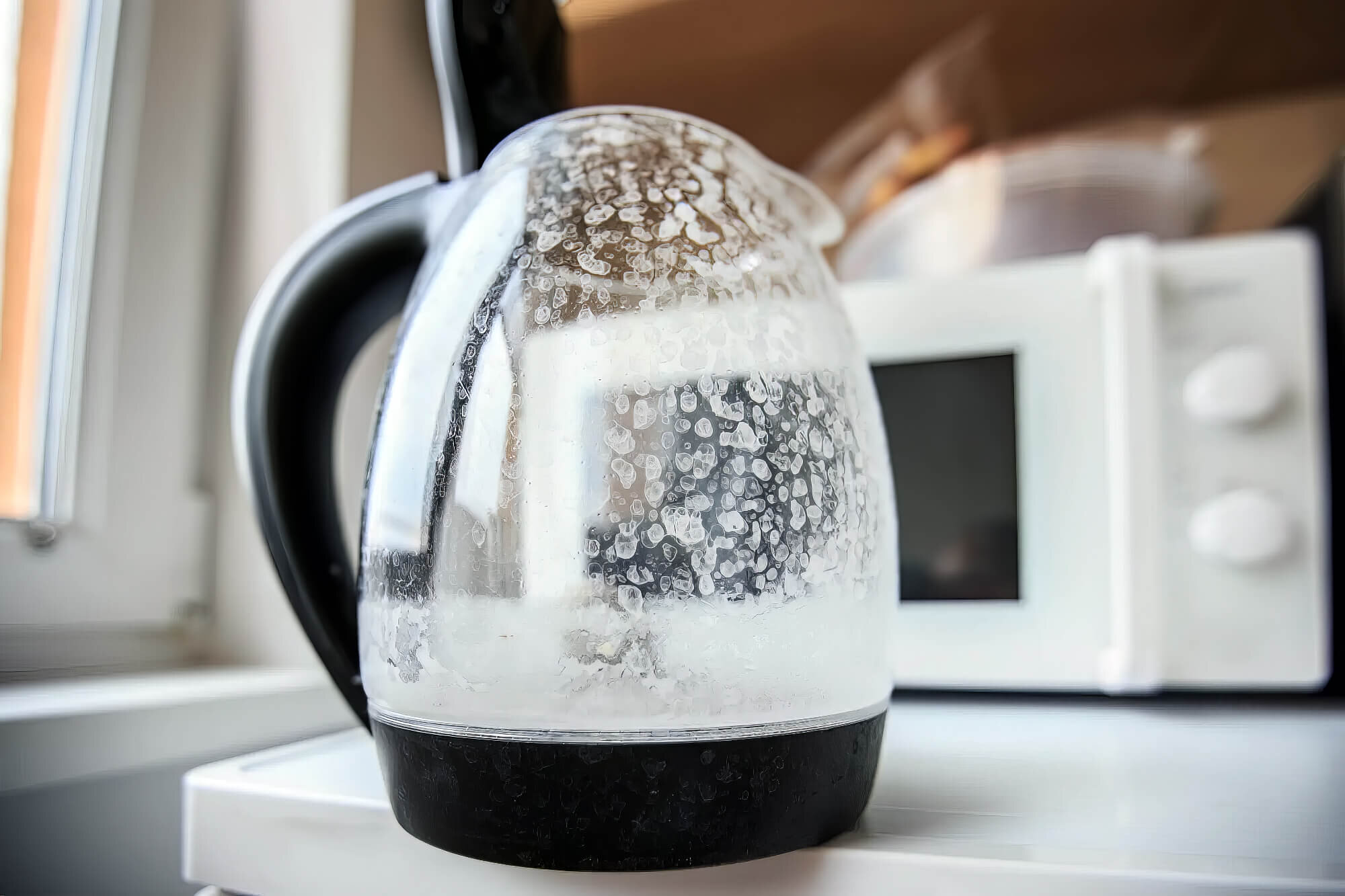
If your drinking water tastes or smells odd, it might be hinting at underlying issues in your water supply. Strange odours or tastes often come from bacterial contamination, a typical issue tied to water hardness. For instance, a metallic taste might mean high iron levels, a classic sign of hard water.
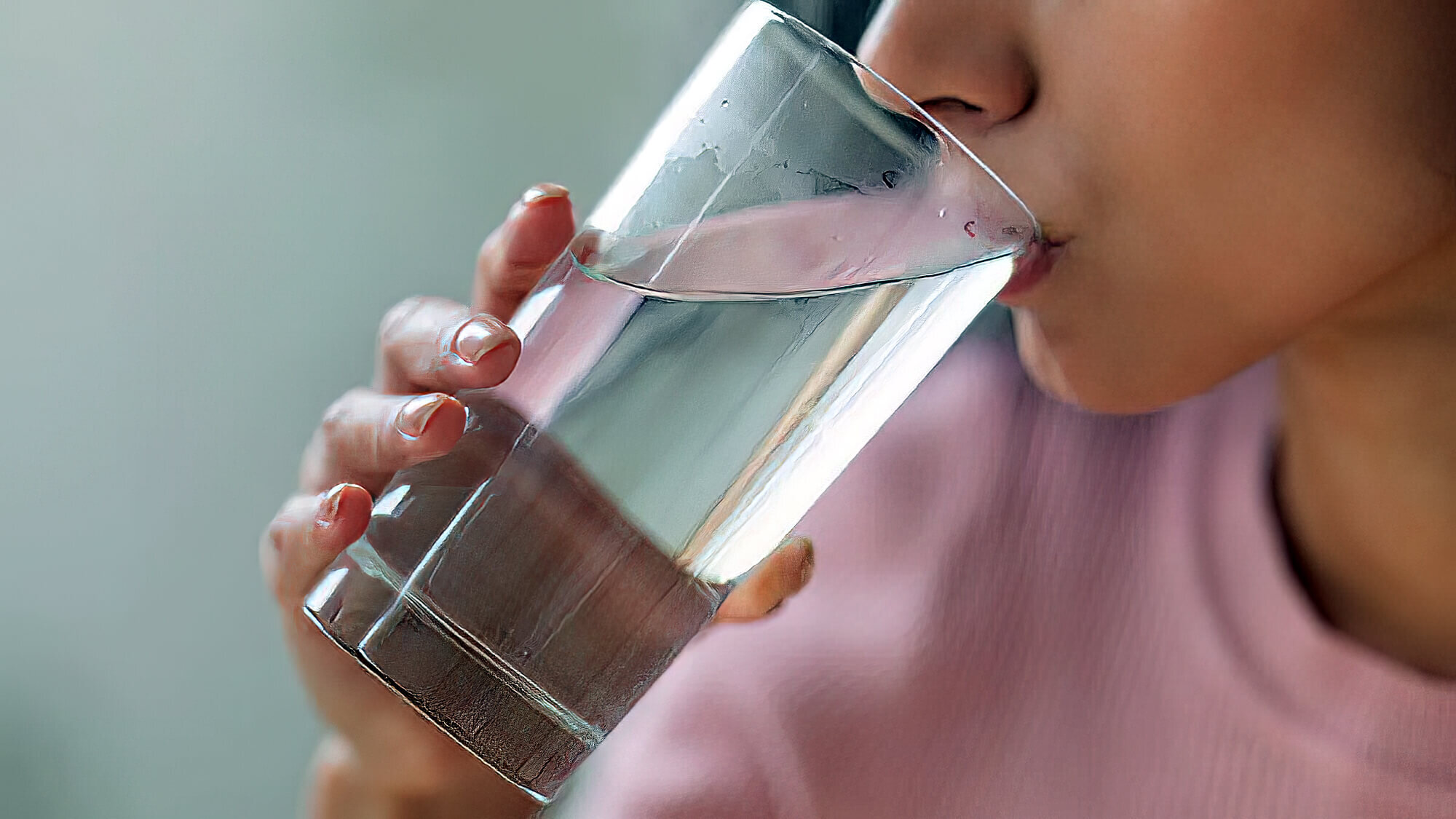
Additionally, if your water smells like rotting eggs, it could be due to bacteria interacting with magnesium to create sulphates, or it might indicate the presence of hydrogen sulphide gas near your water’s source. Algae or sediments in the water supply can also impart a mouldy or earthy taste to your drinking water.
Addressing these issues typically involves treating the water to alter the balance between hard and soft water. Installing systems that convert hard water into soft water can significantly improve the quality and safety of your drinking water by removing excessive minerals and contaminants that contribute to these unwanted tastes and smells.
Hard water containing iron is responsible for reddish or brown stains on your porcelain surfaces, such as sinks and bathtubs. This iron may have dissolved into the water from old, corroded pipes or other components within the plumbing system. While removing such stains by using substances like vinegar may be possible, this won’t solve the problem permanently.
To truly fix it, you need to tackle the root of the issue.
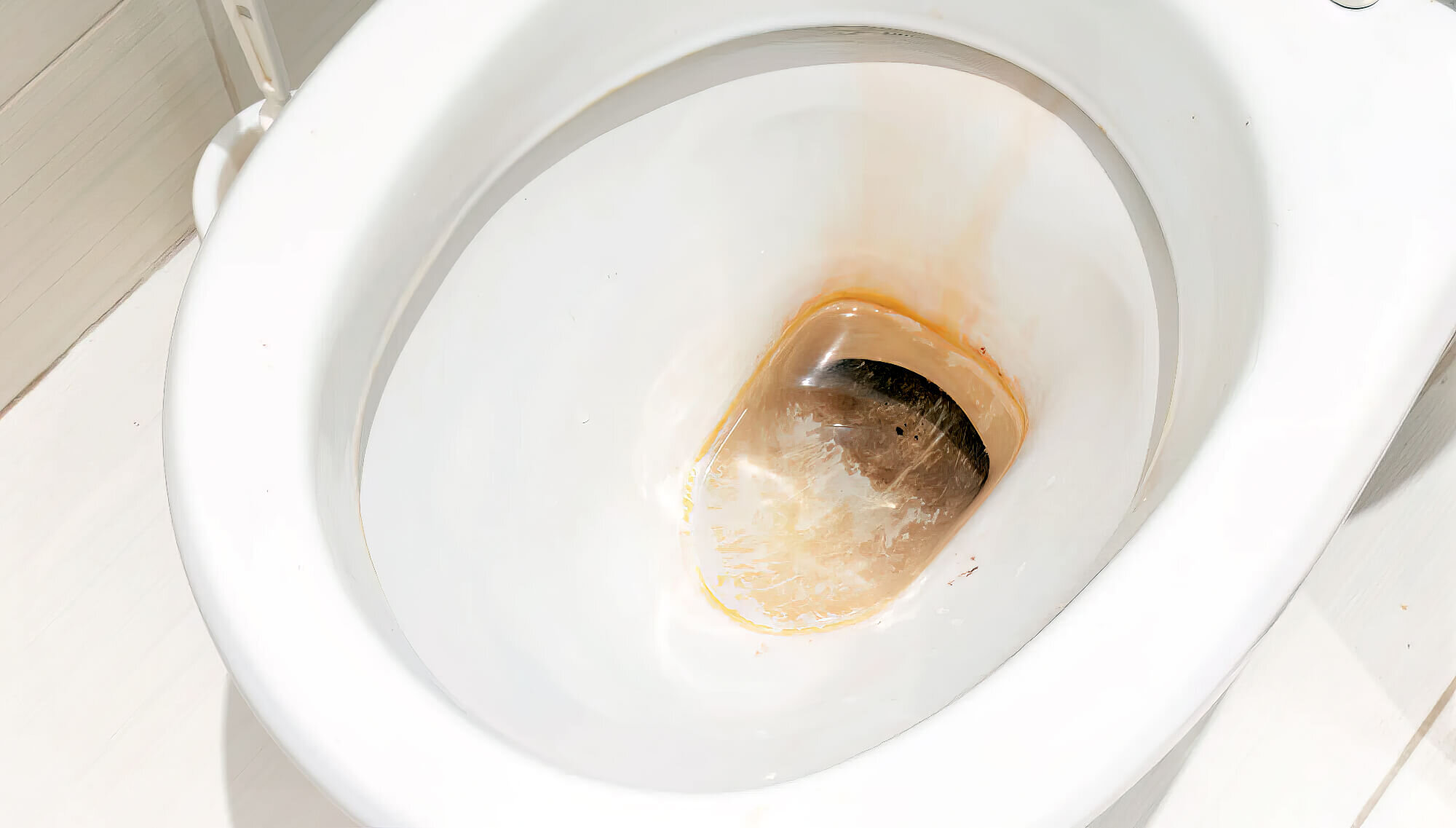
This is another common sign that can indicate a hard water problem. You may notice white spots caused by the water evaporating and leaving behind calcium deposits. Soap scum generally accumulates because soap doesn’t work very well with hard water.
Also, this is not restricted to the bathroom floor but can be seen on dishes that are not completely clean even after rigorous washing. Soap scum can also collect on the shower curtains and may lead to the formation of a bacterial biofilm that can lead to bacterial diseases.
Hard water can affect your showering experience. The high mineral deposits in such water prevent soap from being effective. It is challenging to lather while showering with hard water, making removing the soap from your body difficult. In such cases, it is expected to have a film of soap left behind on the skin.
Additionally, hard water can cause deposits to clog up the showerhead in your bathroom, resulting in lower water pressure. Thus, having an enjoyable showering experience might be difficult if your home has a hard water problem.
Plumbing problems like pipe clogging can become widespread with hard water. Mineral build-up can happen inside the pipes, restricting water flow and leading to water backing up. You must call a plumber to resolve the issue in such a situation.
However, this issue is more common in the case of older steel pipes and not with copper or PVC pipes.
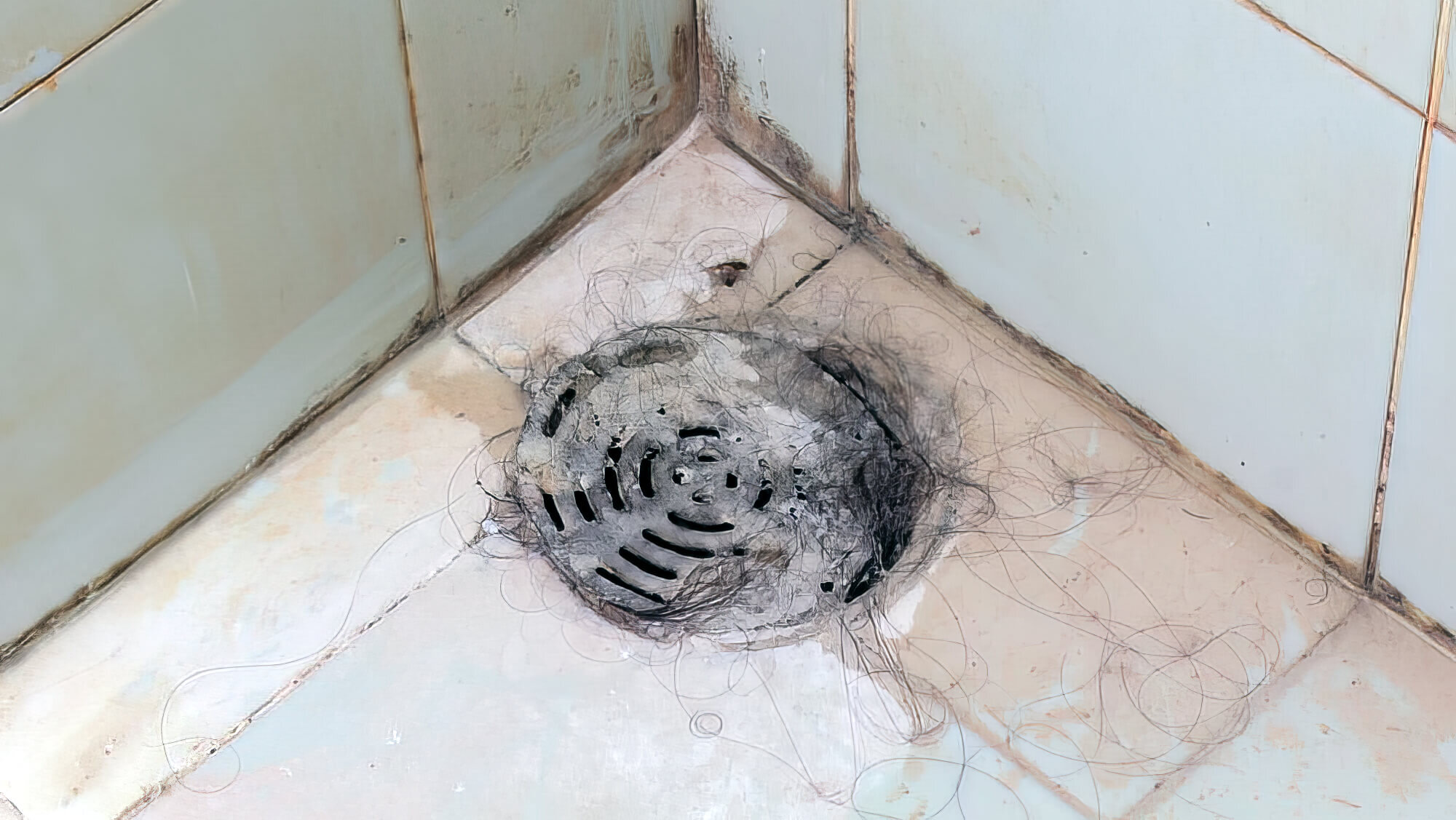
Minerals like calcium and magnesium make it challenging to clean your clothes properly using laundry detergent and soap. Since soap cannot be rinsed off properly, it can cause the build-up of dirt on the clothes. Washing clothes in hard water can cause them to wear out quickly and even make them appear dingy.
Similarly, hard water can make towels rough and scratchy. In such cases, you may need to get a detergent specially developed for water softening. However, such detergents and hotter water must be used in greater quantities.
Hard water can also stain clothes, causing the yellowing of white clothes, which is produced by iron in the water. Iron oxidises when it comes into contact with bleach.
Washing or showering in hard water with a high mineral concentration often leaves soap residue behind. This makes your skin feel itchy and dry and deposits minerals that can dehydrate your skin. The health effects of hard water, such as potentially exacerbating conditions like eczema, especially in children, are particularly concerning.
Using softened water can mitigate these issues. Water softeners typically use resin beads to exchange the mineral content of calcium and magnesium with sodium, effectively reducing the harsh effects on your skin. Additionally, RO water (reverse osmosis water) systems can further purify your water by removing nearly all mineral impurities, offering another layer of protection against dry skin and related health concerns.
One of the costliest issues associated with hard water is the accelerated degradation of household appliances due to scale buildup and calcium deposits. Appliances such as dishwashers and hot water heaters are particularly vulnerable, as sediment accumulation can significantly hinder their efficiency. This results in reduced performance and leads to higher electricity consumption and costs.
For instance, the valves in refrigerators can become clogged with scale deposits, which may interfere with the ice maker’s normal operation. Similarly, washing machines may experience increased wear and tear when operating in conditions with hard water. Addressing this, water softeners, which replace hard minerals with sodium ions, can prevent scale buildup and protect appliances, extending their lifespan and maintaining efficiency.
Using water softeners or reverse osmosis systems can turn hard water into soft water, improving drinking water quality and prolonging the life of your plumbing and appliances. These solutions strip away unwanted minerals and contaminants, keeping your water clean and efficient.
If you’re experiencing hard water issues, consider a water conditioning solution as the optimal fix. For expert installation and advice, contact our Melbourne plumbers at WP Plumbing!
So, if you have hard water problems, getting a water conditioning solution may be the best solution. If you need assistance, contact our Melbourne plumbers at WP Plumbing!
Just found out that your toilet is leaking from the base? Please don’t waste any more time and check out this guide to know the reason behind the leak and how to fix it.
Do you suspect there is a plumbing leak at home but don’t know how to find the problem? Read our guide to learn about the common signs you need to look out for.
Hard water, high in dissolved minerals like calcium and magnesium, can contribute to leaks in shower heads over time. This comprehensive guide examines how hard water leads to mineral build-up and clogging, potentially causing showerhead leaks and reduced water flow.
